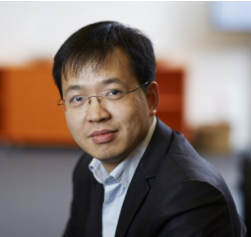 Biograph: Professor Yan Zhang, named 2018 and 2019 “Highly Cited Researcher” (Web of Science top 1% most cited worldwide), is Full Professor in the Department of Informatics at University of Oslo, Norway. He received a PhD degree in School of Electrical & Electronics Engineering, Nanyang Technological University, Singapore. He is an Associate Technical Editor of IEEE Communications Magazine, an Editor of IEEE Network Magazine, an Editor of IEEE Transactions on Vehicular Technology, an Editor for IEEE Transactions on Industrial Informatics, an Editor of IEEE Transactions on Green Communications and Networking, an Editor of IEEE Communications Surveys & Tutorials, an Editor of IEEE Internet of Things journal, an Editor of IEEE Systems Journal, and an Editor of IEEE Vehicular Technology Magazine. He serves as chair positions in a number of conferences, including IEEE GLOBECOM 2017, IEEE PIMRC 2016, IEEE CCNC 2016, WICON 2016, IEEE SmartGridComm 2015, and IEEE CloudCom 2015. His current research interests include: next-generation wireless networks leading to 5G, reliable and secure cyber-physical systems (e.g., smart grid, healthcare, and transport). He is IEEE VTS (Vehicular Technology Society) Distinguished Lecturer during 2016-2020. He is also a senior member of IEEE, IEEE CS, IEEE PES, IEEE ComSoc, and IEEE VT society.
Biograph: Professor Yan Zhang, named 2018 and 2019 “Highly Cited Researcher” (Web of Science top 1% most cited worldwide), is Full Professor in the Department of Informatics at University of Oslo, Norway. He received a PhD degree in School of Electrical & Electronics Engineering, Nanyang Technological University, Singapore. He is an Associate Technical Editor of IEEE Communications Magazine, an Editor of IEEE Network Magazine, an Editor of IEEE Transactions on Vehicular Technology, an Editor for IEEE Transactions on Industrial Informatics, an Editor of IEEE Transactions on Green Communications and Networking, an Editor of IEEE Communications Surveys & Tutorials, an Editor of IEEE Internet of Things journal, an Editor of IEEE Systems Journal, and an Editor of IEEE Vehicular Technology Magazine. He serves as chair positions in a number of conferences, including IEEE GLOBECOM 2017, IEEE PIMRC 2016, IEEE CCNC 2016, WICON 2016, IEEE SmartGridComm 2015, and IEEE CloudCom 2015. His current research interests include: next-generation wireless networks leading to 5G, reliable and secure cyber-physical systems (e.g., smart grid, healthcare, and transport). He is IEEE VTS (Vehicular Technology Society) Distinguished Lecturer during 2016-2020. He is also a senior member of IEEE, IEEE CS, IEEE PES, IEEE ComSoc, and IEEE VT society.
Title:Edge Intelligence for 5G Beyond
Abstract: In this talk, we will present basic concepts related to edge intelligence for 5G Beyond and key enabling technologies with respect to communications, computation, machine learning, deep learning and cyber-physical optimization. We will first introduce the main concepts and challenges in 5G Beyond. Then, we will provide a thorough perspective on how mobile edge computing concepts can be adapted for 5G networks. In this scenario, we will focus on resource allocation, models and optimization problems, and various offloading and caching techniques. Next, we will extend mobile edge computing to edge intelligence and present our ideas on utilizing deep reinforcement learning (deep Q-learning, DDPG) for data transmission, offloading and content distribution in 5G networks. We will further present edge intelligence in 5G-enabled IoT systems, e.g., intelligent transport systems. The approach and the solutions in this context will result in highly efficient interconnection and synergy among various types of components in 5G networks and its applications.